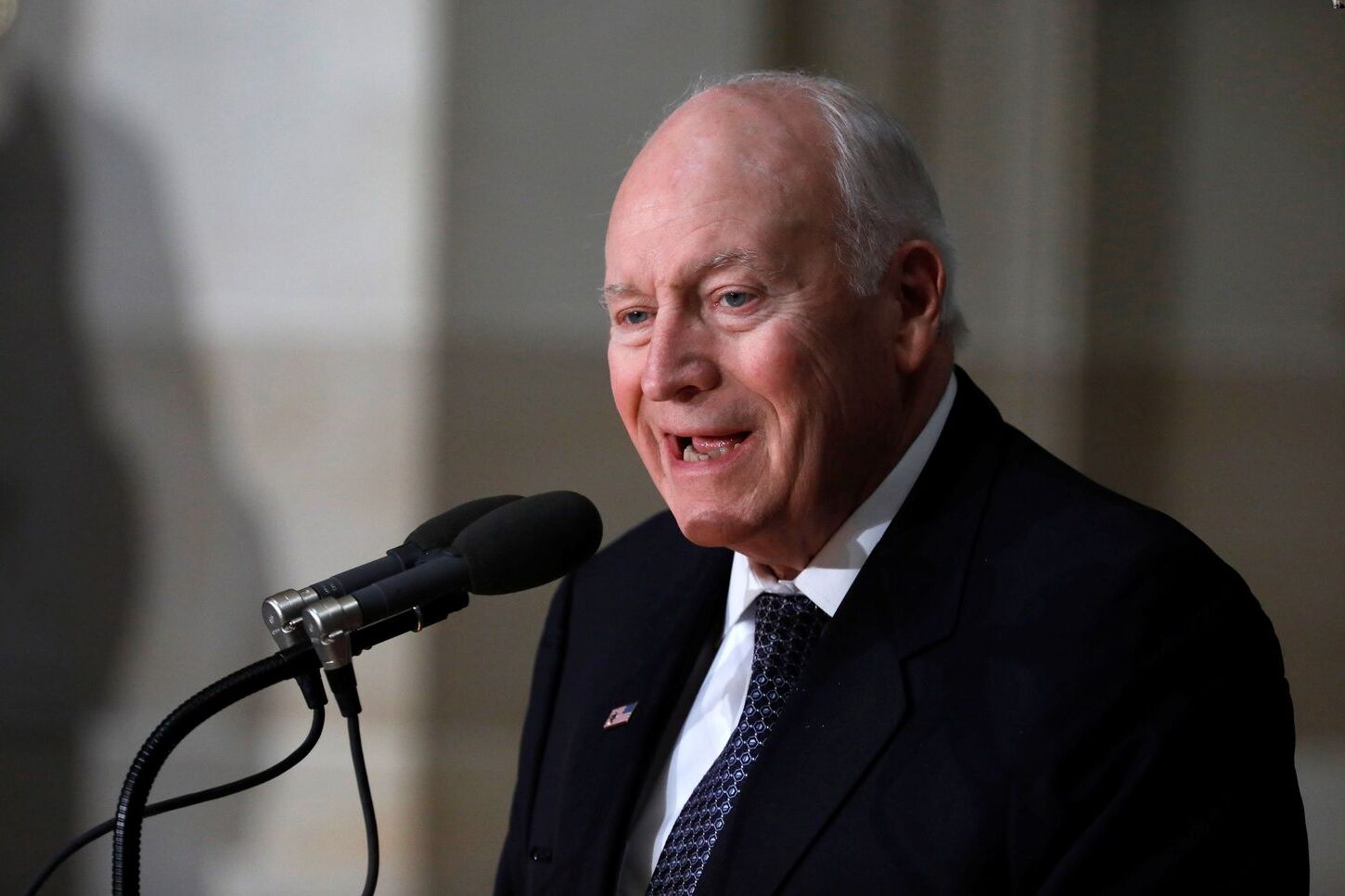
Who is Dick Cheney? Born on January 30, 1941, in Lincoln, Nebraska, Dick Cheney is a name that resonates deeply in American politics. Cheney's career spans over four decades, marked by significant achievements and controversies. He served as the 46th Vice President of the United States under George W. Bush from 2001 to 2009. Before that, he was the Secretary of Defense, overseeing major military operations like Operation Desert Storm. Cheney's life is also punctuated by personal challenges, including multiple heart attacks and a heart transplant. His legacy remains a topic of debate, reflecting both his impactful decisions and contentious policies.
Key Takeaways:
- Dick Cheney's early life and education in the heartland of America laid the foundation for his future political career, marked by strong family bonds and significant health challenges.
- Cheney's influential political career, from Congress to the Vice Presidency, was marked by significant military campaigns, strategic decisions, controversies, and continued impact on U.S. politics.
Early Life and Education
Dick Cheney's journey began in the heartland of America. His early life and education laid the foundation for his future political career.
- Birth and Early Life: Richard Bruce Cheney was born on January 30, 1941, in Lincoln, Nebraska, to Richard Herbert Cheney, a soil conservation agent, and Marjorie Lauraine Dickey Cheney.
- Family Move: At the age of 13, Cheney's family moved to Casper, Wyoming, where his father worked for the U.S. Soil Conservation Service.
- Education: Cheney attended Natrona High School in Casper, Wyoming, where he was co-captain of the football team and senior class president. He later attended Yale University but failed to graduate.
- University of Wyoming: After leaving Yale, Cheney earned his bachelor's degree in political science from the University of Wyoming in 1965 and his master's degree in the same field in 1966.
- Doctoral Studies: Cheney was a doctoral candidate at the University of Wisconsin but dropped out to work as a staff aide for Governor Warren Knowles.
Personal Life
Cheney's personal life has been marked by a strong family bond and significant health challenges.
- Marriage: On August 29, 1964, Cheney married Lynne Vincent, who later earned a doctorate in British literature from the University of Wisconsin.
- Daughters: The Cheneys have two daughters, Elizabeth and Mary. Mary is openly gay, and Dick Cheney has publicly supported same-sex marriage, although he believes it should be handled at the state level.
- Heart Attack: On June 18, 1978, Cheney suffered his first heart attack.
- Heart Attack and Surgery: In 1988, he suffered his third heart attack and underwent quadruple-bypass surgery.
- Heart Transplant: In 2012, Cheney underwent a heart transplant after suffering his fifth heart attack in 2010.
Early Political Career
Cheney's early political career saw him rise through the ranks, gaining valuable experience and making important connections.
- Political Internship: In 1965, Cheney worked as a part-time legislative intern to the Wyoming Senate legislature, which had a Republican majority.
- Congressional Fellowship: In 1968, Cheney was awarded an American Political Science Association congressional fellowship with Congressman William Steiger and moved to Washington, D.C.
- White House Position: Beginning in 1969, Cheney worked in the administration of President Richard Nixon. He was assigned to work for Donald Rumsfeld, director of the Office of Economic Opportunity, and later became Rumsfeld's special assistant.
- Cost of Living Council: From 1971 to 1973, Cheney served as the assistant director of the Cost of Living Council.
- Brussels Assignment: In 1973, Rumsfeld asked Cheney to join him in Brussels, Belgium, when Nixon appointed Rumsfeld ambassador to NATO. However, Cheney declined and instead accepted a post at Bradley, Woods and Company, a Washington, D.C., investment firm.
Ford Administration
Cheney's role in the Ford administration marked a significant step in his political career, showcasing his leadership skills.
- Ford Administration: In August 1974, Gerald Ford succeeded President Nixon and appointed Rumsfeld to head his transition team. Rumsfeld recruited Cheney to serve as his deputy, and later, Cheney became the deputy assistant to the president.
- Chief of Staff: From September 1974 to November 5, 1975, Cheney served as the deputy assistant to the president. He then became the White House chief of staff from November 5, 1975, to 1977.
Congressional Career
Cheney's time in Congress solidified his reputation as a key player in Republican politics.
- Congressman from Wyoming: From January 3, 1979, to March 17, 1989, Cheney served as the U.S. Congressman from Wyoming. He was reelected five times and rose to become the Republican whip.
- House Republican Policy Committee: From 1981 to 1987, Cheney chaired the House Republican Policy Committee.
- House Republican Conference: In 1987, he was elected chairman of the House Republican Conference.
- House Minority Whip: In 1988, Cheney became the House minority whip.
Secretary of Defense
Cheney's tenure as Secretary of Defense was marked by significant military campaigns and strategic decisions.
- Secretary of Defense: In March 1989, President George H.W. Bush nominated Cheney for secretary of defense after John Tower’s nomination failed to win Senate confirmation. He served in this position from 1989 to 1993.
- Military Campaigns: During his tenure as secretary of defense, Cheney directed two significant military campaigns: Operation Just Cause in Panama and Operation Desert Storm in the Middle East.
- Presidential Medal of Freedom: On July 3, 1991, Cheney was awarded the Presidential Medal of Freedom by President Bush for his leadership during the Gulf War.
Halliburton Career
After leaving government service, Cheney transitioned to the private sector, leading a major corporation.
- Halliburton Career: After leaving government service, Cheney became the chairman and CEO of Halliburton Company, a supplier of technology and services to the oil and gas industries, in 1995.
Vice Presidency
Cheney's vice presidency under George W. Bush was one of the most influential in U.S. history.
- Vice Presidential Search Committee: In 2000, Cheney was appointed to head George W. Bush’s vice presidential search committee. Few expected that he would eventually become the Republican vice presidential candidate.
- Heart Attack During Transition: Two weeks after election day in 2000, Cheney suffered another mild heart attack but quickly resumed his duties as leader of Bush’s presidential transition team.
- Vice Presidency: From 2001 to 2009, Cheney served as the 46th Vice President of the United States under President George W. Bush. He played a central role in shaping the administration’s energy policy and foreign policy in the Middle East.
- Iraq War Intelligence: Cheney was actively involved in conveying intelligence reports that Saddam Hussein of Iraq had developed weapons of mass destruction (WMDs), which were used by the Bush administration to initiate the Iraq War. However, no WMDs were found in Iraq.
- Halliburton Contracts: Following the collapse of Saddam’s regime, Cheney’s former company, Halliburton, secured lucrative reconstruction contracts from the U.S. government, raising allegations of favoritism and possible wrongdoing.
Controversies and Public Disagreements
Cheney's career has not been without controversy, with several high-profile incidents and disagreements.
- Valerie Plame Scandal: In 2003, Cheney’s chief of staff, Scooter Libby, was involved in leaking the identity of Valerie Plame, a covert CIA agent. Libby was found guilty of lying during the investigation and was sentenced to jail. President Bush commuted his sentence but did not pardon him. Cheney publicly disagreed with Bush’s decision, marking one of their few public disagreements.
- Same-Sex Marriage: Another area of disagreement between Cheney and Bush was same-sex marriage. While Bush opposed it, Cheney supported it, believing that states should decide on the issue.
- Public Criticism: After leaving office in 2009, Cheney remained in the public eye, often speaking on political matters. He criticized President Barack Obama’s administration but praised Obama for his handling of Osama bin Laden’s assassination.
Post-Vice Presidency
Even after leaving office, Cheney continued to influence public discourse and share his experiences.
- Autobiography: In 2011, Cheney published his autobiography, In My Time: A Personal and Political Memoir, co-written with his daughter Liz Cheney.
- Heart: An American Medical Odyssey: In 2013, Cheney wrote Heart: An American Medical Odyssey with his heart surgeon.
- Exceptional: Why the World Needs a Powerful America: In 2015, he co-authored Exceptional: Why the World Needs a Powerful America with Liz Cheney.
- Public Speaking: Despite his health issues, Cheney continued to be an active public speaker and writer, contributing to various political discussions and debates.
Legacy and Impact
Cheney's legacy is a subject of debate, reflecting both his achievements and controversies.
- Legacy Debate: Cheney’s legacy is often debated, with some viewing him as a strong leader who made necessary decisions, while others criticize his involvement in controversial policies and actions.
- Secret Service Code Name: Cheney’s Secret Service code name was "Angler," reflecting his love for hunting and fishing.
- Hunting Accident: In 2006, Cheney accidentally shot fellow hunter Harry Whittington in the face during a hunting trip. This incident was widely publicized and marked a regretful moment in his life.
Contributions and Honors
Cheney's contributions to politics and his recognition reflect his significant impact on American history.
- Gerald Ford Foundation Trustee: Cheney served as a trustee of the Gerald R. Ford Presidential Foundation, reflecting his respect for Ford’s leadership and legacy.
- Oral History Interview: In 2009, Cheney was interviewed for the Gerald R. Ford Oral History Project, where he discussed his early life, education, and political career.
- Ford’s Pardon of Nixon: Cheney praised Gerald Ford for his decision to pardon Richard Nixon, acknowledging the political burden Ford bore as a result.
- Ford’s Legacy: Cheney believed that Ford should be remembered for his role in avoiding major crises and his willingness to step up and make difficult decisions, such as pardoning Nixon.
- Cheney’s Respect for Ford: Cheney expressed immense respect for Ford, highlighting their unique historical context and the challenges they faced together in the aftermath of Watergate.
Political Positions and Health
Cheney's political positions and health issues have shaped his career and public perception.
- Cheney’s Early Political Jobs: Before entering national politics, Cheney worked as a legislative intern in Wyoming and later as a congressional fellow in Washington, D.C.
- Cheney’s Support for Republican Policies: During his time in Congress, Cheney took conservative positions on issues like abortion, gun control, and environmental regulation.
- Cheney’s Health Issues: Over the years, Cheney has suffered multiple heart attacks and underwent quadruple-bypass surgery in 1988. He also received a heart transplant in 2012.
Post-Political Life
Cheney's life after politics has been marked by continued involvement in public affairs and business ventures.
- Cheney’s Post-Political Life: After leaving office, Cheney remained active in public life, writing books and speaking on various political topics. He has also been involved in various business ventures and philanthropic activities.
- Cheney’s Impact on U.S. Politics: Dick Cheney’s career has had a significant impact on U.S. politics, particularly in the areas of defense, energy policy, and foreign affairs. His influence continues to be felt in contemporary political discourse.
Cheney's Lasting Impact
Dick Cheney's life and career have left a significant mark on American politics. From his early days in Wyoming to his influential role as Vice President, Cheney's journey is filled with notable achievements and controversies. His tenure as Secretary of Defense saw major military campaigns, while his time at Halliburton raised eyebrows due to lucrative contracts. Cheney's stance on same-sex marriage and his involvement in the Iraq War highlight his complex legacy. Despite health challenges, including multiple heart attacks and a heart transplant, Cheney remained active in public life, writing books and speaking on political matters. His legacy continues to spark debate, reflecting both his accomplishments and contentious decisions. Whether viewed as a strong leader or a polarizing figure, Cheney's impact on U.S. politics is undeniable. His story is a testament to resilience, dedication, and the complexities of political life.
Frequently Asked Questions
Was this page helpful?
Our commitment to delivering trustworthy and engaging content is at the heart of what we do. Each fact on our site is contributed by real users like you, bringing a wealth of diverse insights and information. To ensure the highest standards of accuracy and reliability, our dedicated editors meticulously review each submission. This process guarantees that the facts we share are not only fascinating but also credible. Trust in our commitment to quality and authenticity as you explore and learn with us.


